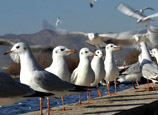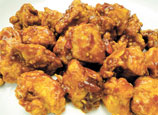
"We hope to present these philosophers as far more human characters and shorten the psychological distance with today's people," says Shao, who is a member of the cartoon series' creative team.
People today have many misunderstandings about the great philosopher, he says, adding that Confucius was not as conservative and morally rigid as many people believe.
In fact, he was quite open-minded, as evidenced by his famous saying, "The desire for food and sex is part of human nature."
The cartoon series is a part of a national campaign to promote Chinese culture. The books will be promoted at major international comics and animation festivals around the world.
It will feature famous stories about the philosophers.
For example, Mencius' (372-289 BC) mother moved house three times to find a good environment for her son's education and growth.
Mencius himself, who elaborated upon and applied Confucian principles, was an itinerant intellectual who traveled widely and developed his ideas about politics and education.
There's also a legendary purported conversation between Laozi, founder of Taoism, and Confucius in which Confucius asked him about rites. Laozi urges Confucius to "give up your arrogant airs, many desires, contrived posturing and overweening ambition."
The book about Zhuangzi (369-286 BC), considered to be in the Taoist tradition, describes the scholar's rejection of a king's offer of wealth and position and his pursuit of spiritual contentment and a simple life. He is optimistic about death and when his wife dies, he beats a drum and sings.
Mozi (470-391 BC), whose beliefs were seen to rival Confucianism, emphasized universal love, frugality, meritocracy and rejection of ritual. He emphasized agriculture, fortification and statecraft. He opposed war and developed defensive military equipment and strategy. He also invented agricultural equipment.
Sunzi (544-496 BC) was a military general and strategist famous as the author of the "Art of War" that has become popular with political leaders and business managers.
 |














 Black-headed gulls come to Kunming for winter
Black-headed gulls come to Kunming for winter


![]()
